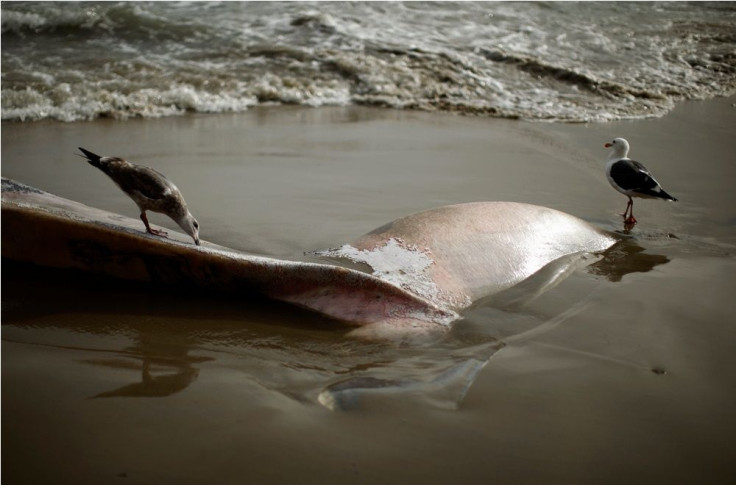Rare Omura’s Whale Found On Australian Shore

A very rare species of whale has been discovered washed up on a beach shore in Australia. The dead whale carcass was found near Exmouth, 734 miles north of Perth.
Scientists say that the discovery of the washed up Omura’s whale will only provide them more information about the species and help them understand its distribution in the waters. The discovery became only the second sighting recorded in Australia. "This find is highly significant for whale scientists in Western Australia and researchers globally because there have not been many recorded sightings of this species, so very little is known about it," said Albert Jacob, environment minister for Western Australia.
The whale found on the beach was a young female, which measured 5.7 metres in length (adult Omura’s whale can grow double that size). The carcass has been buried and will be dug up after several years to conduct more scientific study or use it as an exhibit for museums.
Omura’s whale is also known as the dwarf fin whale since it is always mistaken for the fin whale for its close resemblance. It is a baleen whale found in deep waters of tropical/subtropical environments. Aside from the fact that they are usually small in size, these whales are rare and scientists find it a challenge to gather data on this marine creature.
Due to insufficient research data, not much is known about the mammal’s diet. However, since it is a baleen whale it is believed to use the filter feeding method when hunting for food.
Research performed on the Omura’s whale carcass would help with proper identification of the species so there is better understanding on its movement. “Scientists know a fair bit about many whale species but this exciting discovery shows there is still so much more to learn in our oceans,” said Jacob.
The population of the Omura’s whale remains unknown. According to the International Union for Conservation of Nature, only a handful has been previously found.
To contact the writer, email: wendylemeric@gmail.com





















